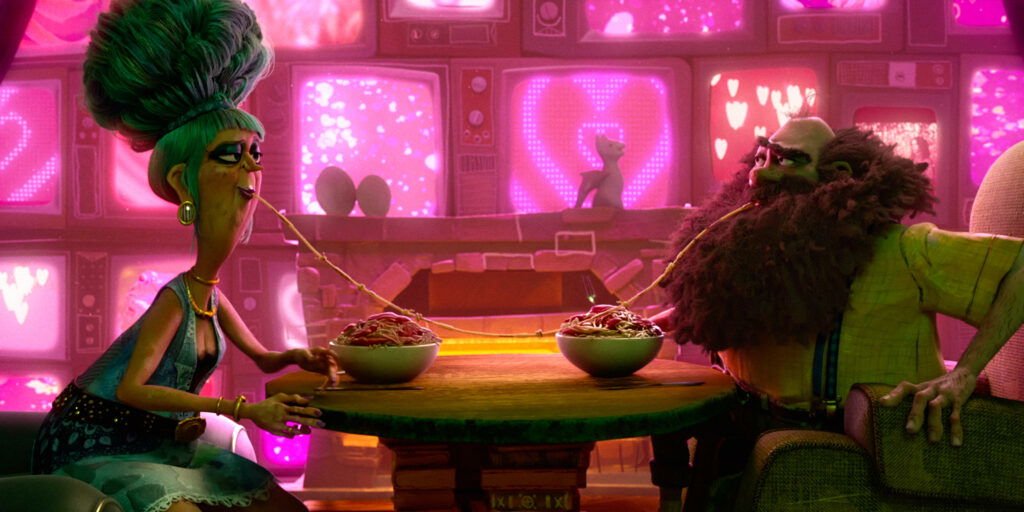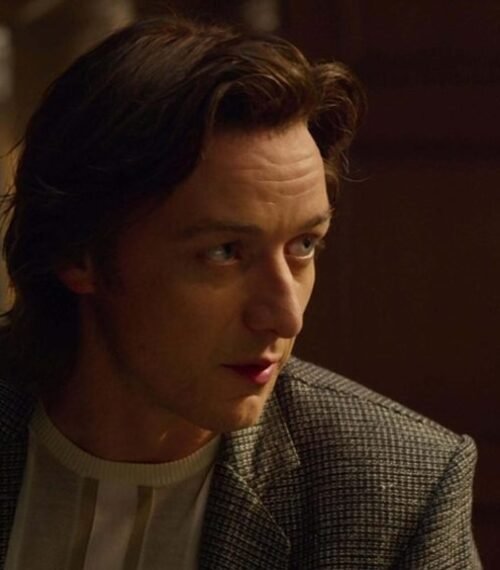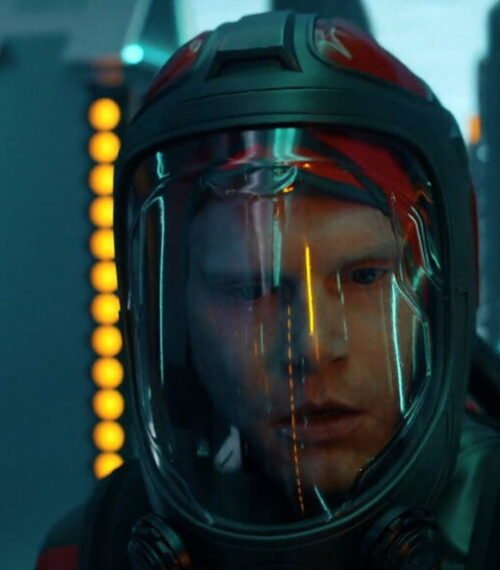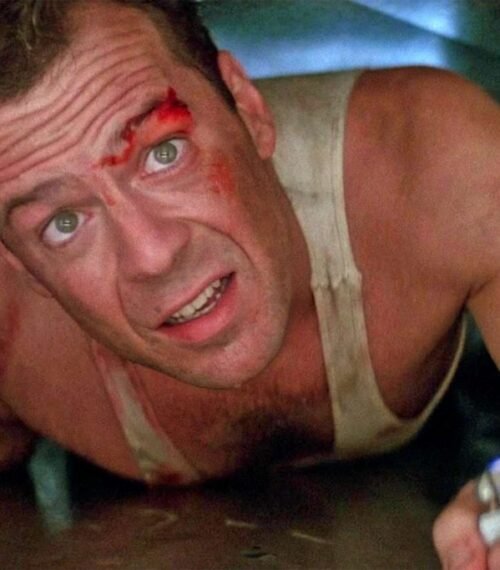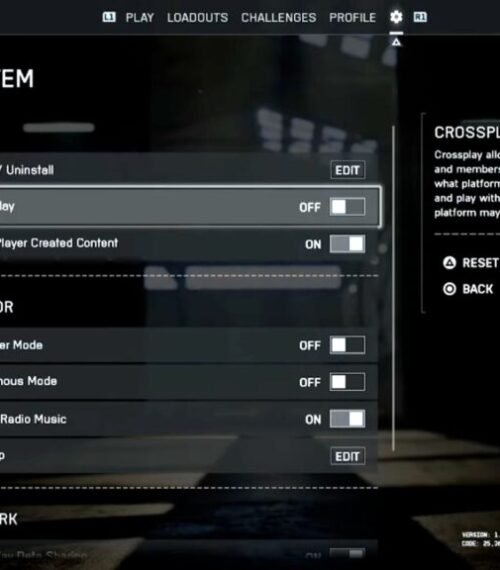The Twits as a story is admittedly one of my Roald Dahl blind spots, so I wasn’t entirely sure what to expect from this new movie adaptation. But the expressive animation and strong voice cast, combined with the pedigree of Dahl’s work, were certainly intriguing. The final product is, I’m pleased to report, much more than the surface-level appeal of exaggerated character designs and clever takes on typically low-brow humor.
The film feels like a classic morality tale updated for a modern, nuanced view of the world. A story of standing up to cruelty and finding empathy in our increasingly cynical society told through a lens of talking animals and cartoonishly gross caricatures. How did they pull it off? Let’s find out.
What is The Twits about?
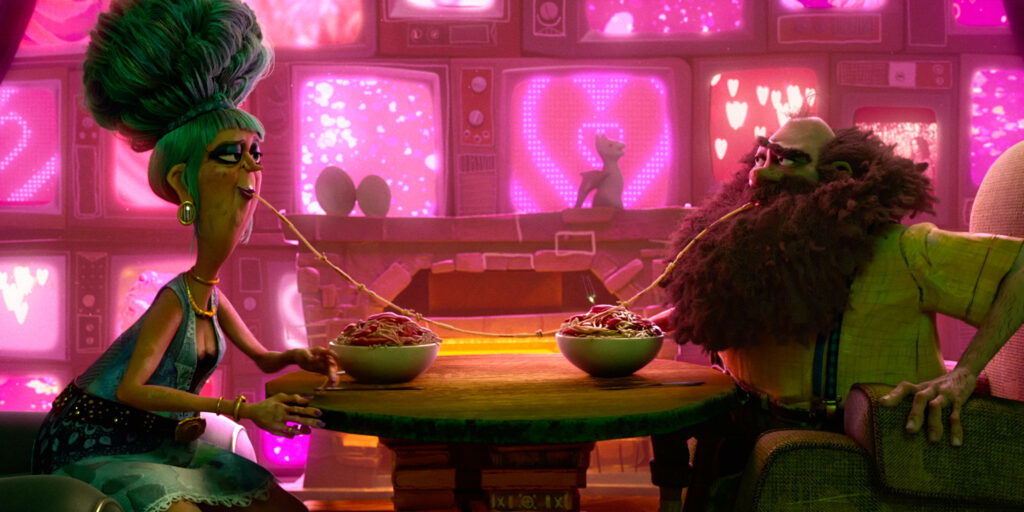
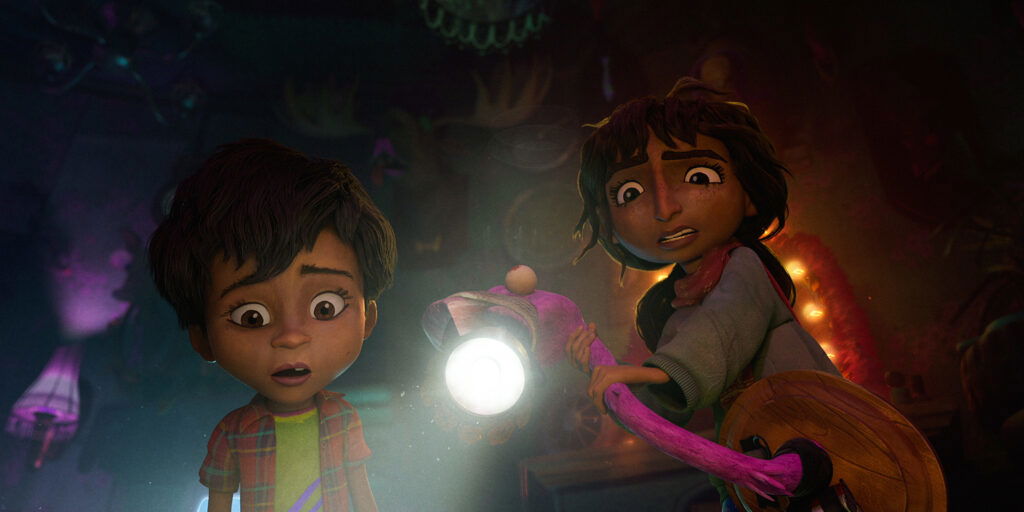

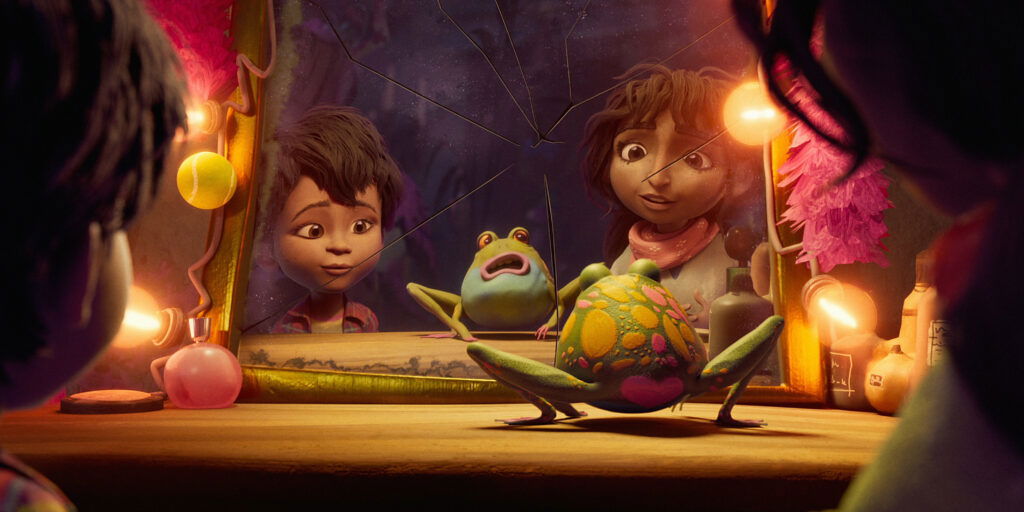
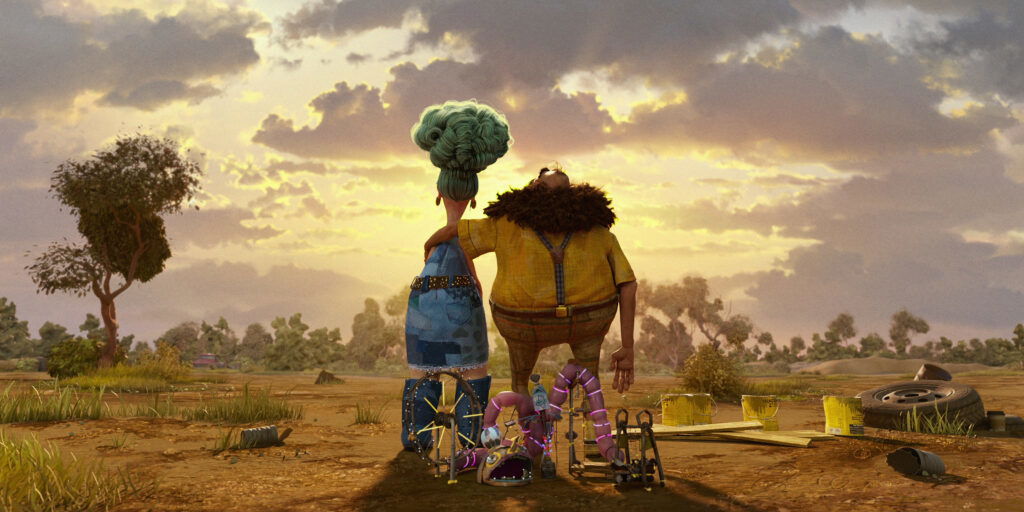
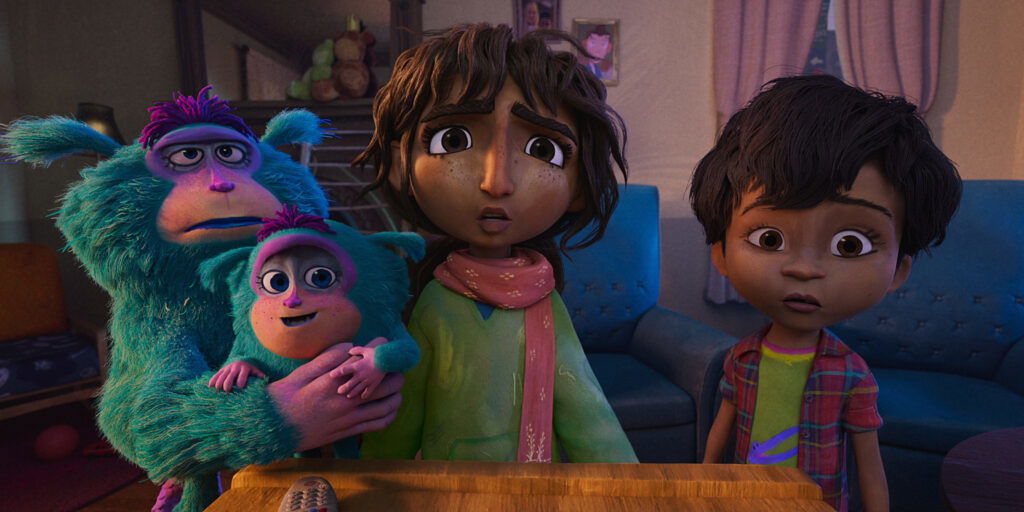
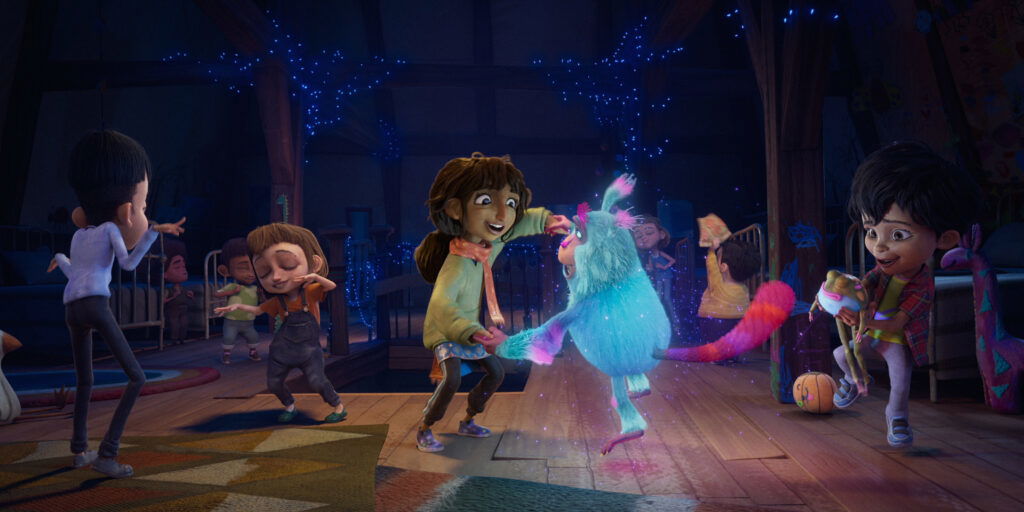
Mr. and Mrs. Twit, voiced by Johnny Vegas and Margo Martindale respectively, are two of the most truly horrid people in the world, let alone in the small town of Triperot. They hate everyone and everything, including each other, except for their newly constructed and utterly unsanitary and dangerous theme park: Twitlandia. They love Twitlandia so much they’ll pull any dastardly and cruel trick necessary to keep it open.
But their lust for power soon puts them in the crosshairs of a pair of scrappy orphans named Bubsy and Beesha, voiced by Ryan Lopez and Maitreyi Ramakrishnan. And their boundless kindness and empathy mean they can’t let the Twits get away with hurting others. Together with their newfound family of magical, chimpanzee-like creatures called Muggle-Wumps, Beesha and Bubsy will have to pull off even greater tricks than The Twits to put a stop to their cruelty for good.
The Twits Review
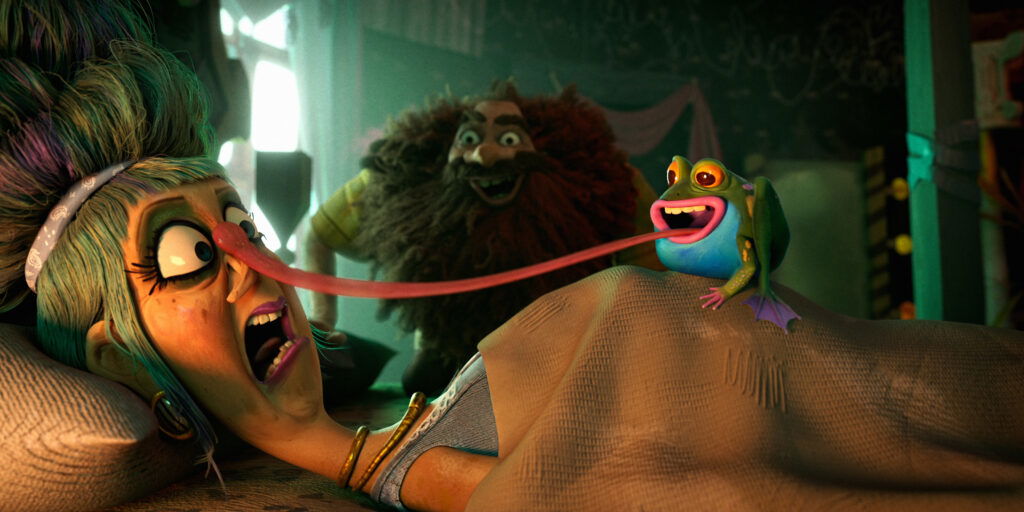
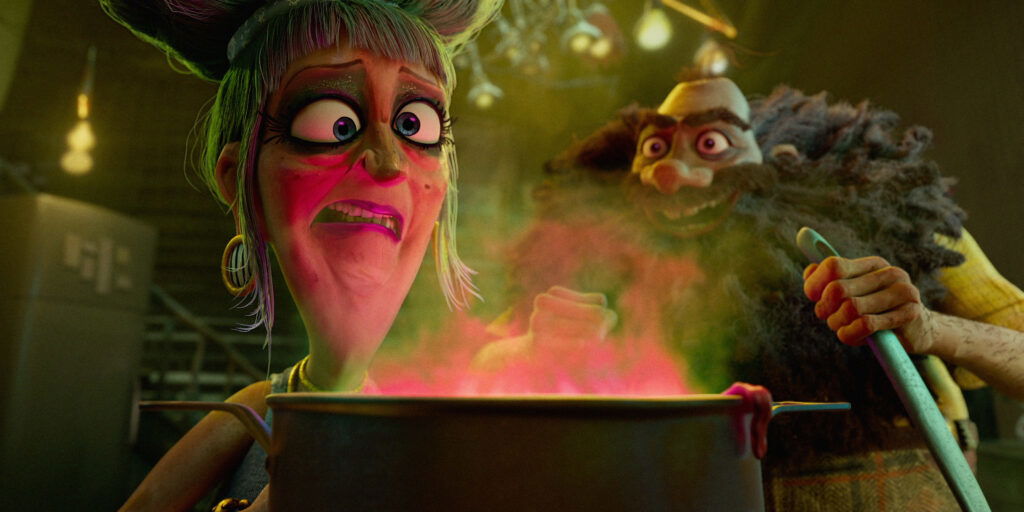
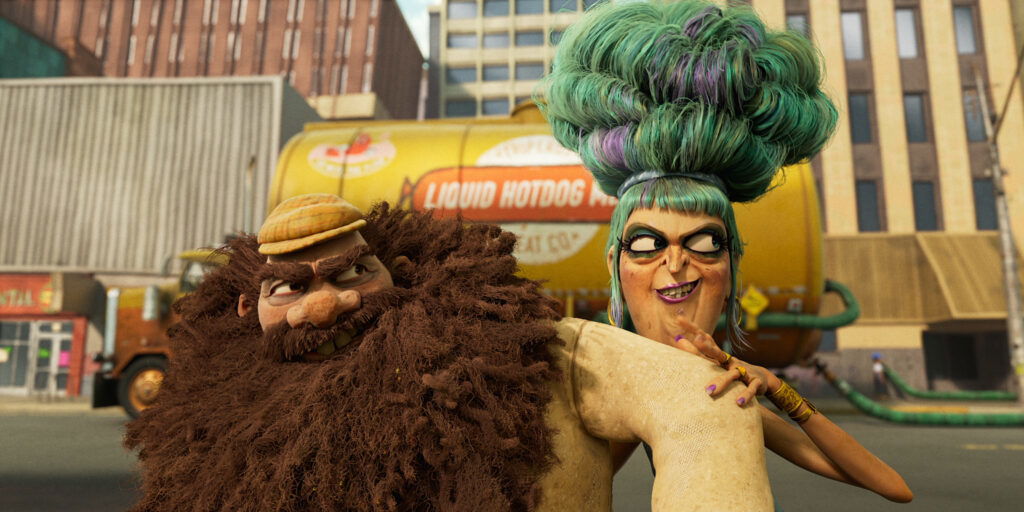
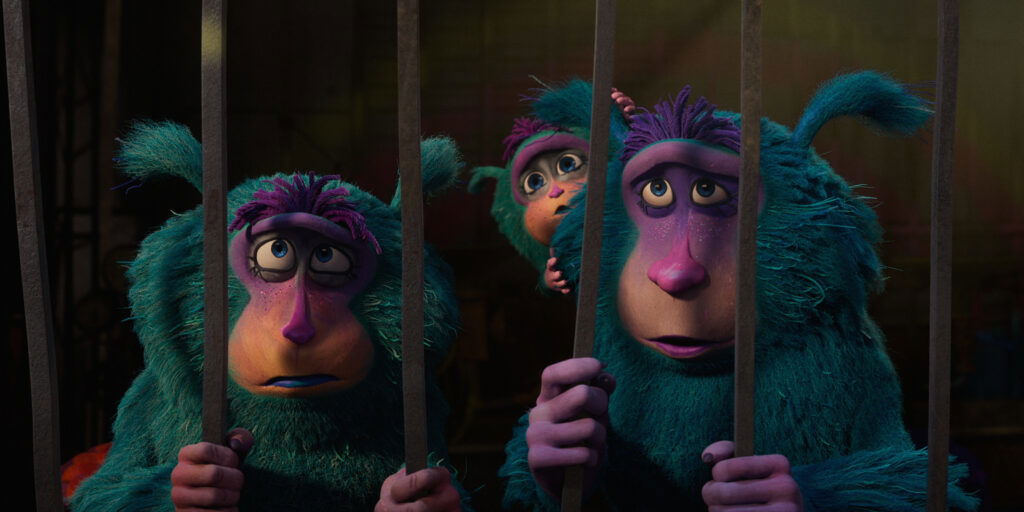
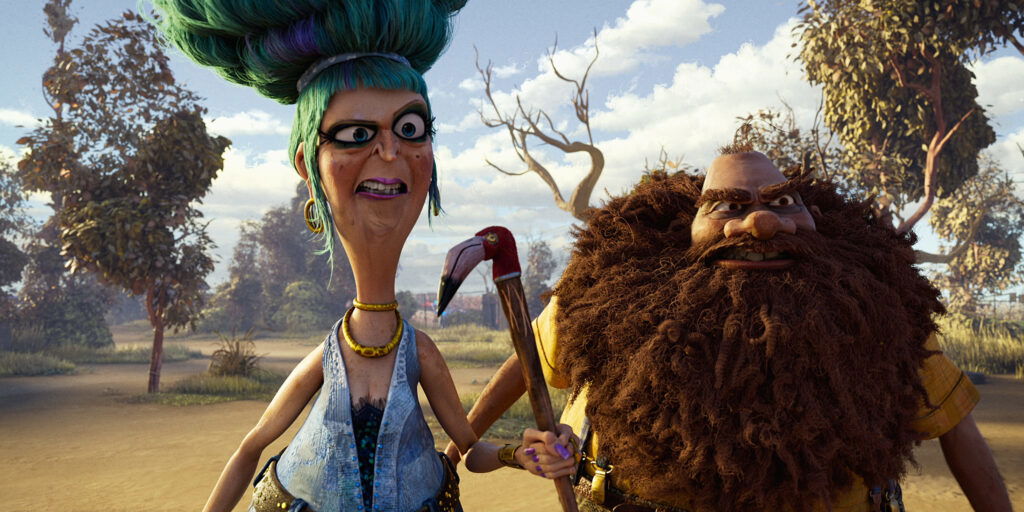
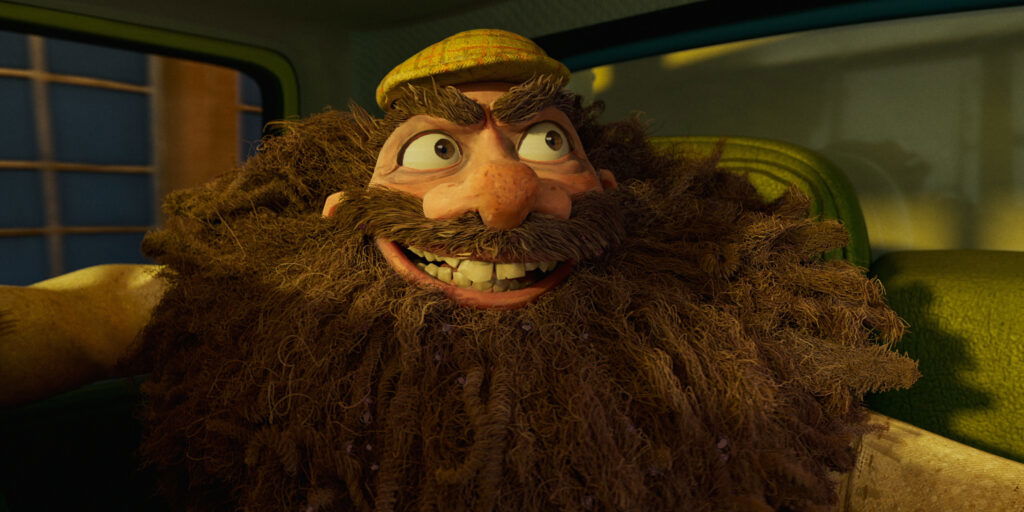
Right off the bat, The Twits draws you in by perfectly capturing that classic Roald Dahl atmosphere. The rundown nature of all the buildings in Triperot and the very real sense of danger and tension when our villains chase down our heroes both feel right at home with some of the author’s most beloved works. And the character designs, particularly the Twits themselves, are about as perfect a 3D translation of Dahl’s original illustrations as you could ask for.
Moreover, the various mechanisms the Twits use to accomplish their evil goals feel very tactile but also strung together, befitting the nature of the characters, giving the film’s set pieces and major gags a Looney Tunes-style absurdity while also making the world feel very tangible and lived in. And while many of the jokes are of the gross-out variety, the film smartly and refreshingly works to craft actual jokes out of the grossness rather than simply stopping at “They did a fart and therefore it’s funny” like other, lesser family films.
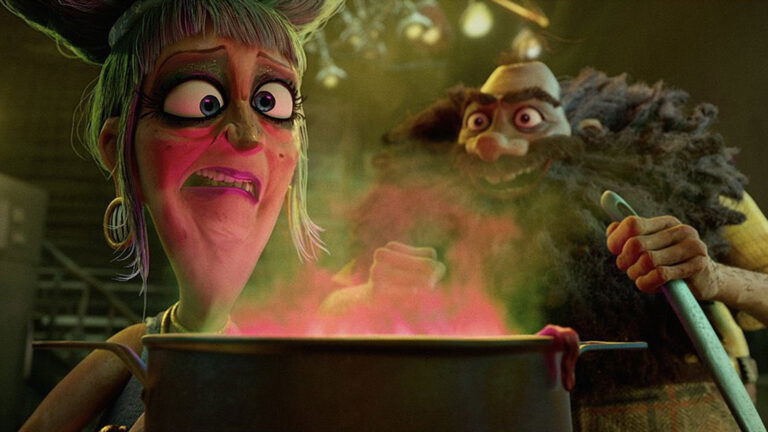
Is The Twits Based on Roald Dahl’s Classic? Source Explained
This is aided, of course, by a tremendously talented voice cast bringing these characters to life. Johnny Vegas and Margo Martindale are uproariously funny as Mr. and Mrs. Twit respectively, Ryan Lopez and Maitreyi Ramakrishnan are very lovable as Bubsy and Beesha, and Natalie Portman and Timothy Simons as Mary and Marty Muggle-Wump are the warm and caring surrogate magic monkey parents you didn’t know you needed.
Most importantly though, despite the most contemporary technology in the film being an HD TV, The Twits understands the modern world’s depressing lack of and desperate need for empathy, turning its power over cruelty into the central thesis of the story. Our heroes can understand what the Muggle-Wumps are saying explicitly because they have a strong sense of empathy. Beesha becomes involved in the story because she empathizes with the struggles of those around her. And by that same token, our villains embody modern cruelty to a tee.
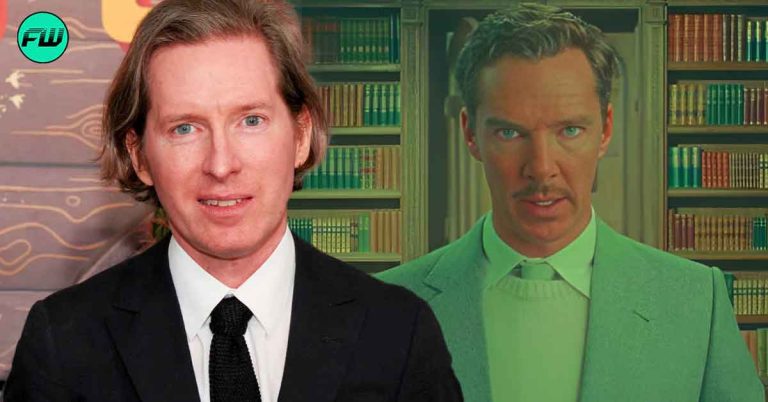
The Wonderful Story of Henry Sugar- Is Wes Anderson’s Latest Roald Dahl Adaptation Actually Based on a True Story?
The Twits’ rise to power amongst the public heavily involves empty promises and fear-mongering, deliberately evoking the political campaigns and policies of MAGA politicians up to and including Donald Trump himself. And while the Twits’ stated hatred of everyone and everything is never illustrated through outright explicit bigotry, the decision to have Beesha and Bubsy portrayed as people of color feels rather pointed in this context.
Right-wing grifters will no doubt use this as an excuse to deride the film as “woke trash” or whatever buzzword they’re using this week, but for me, I feel like reminding the audience of the modern world’s biggest opponent of empathy helps make the film’s empathetic message that much stronger. If anything, it might go just a little too far in trying to extend forgiveness to those that don’t deserve it, though it does thankfully land on the “not tolerating intolerance” side of things by the end.
Is The Twits worth watching?
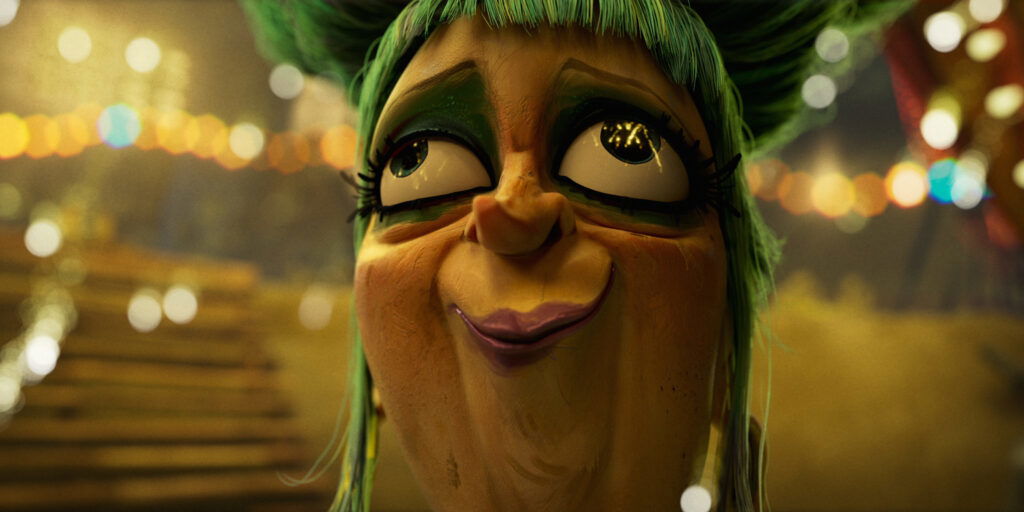
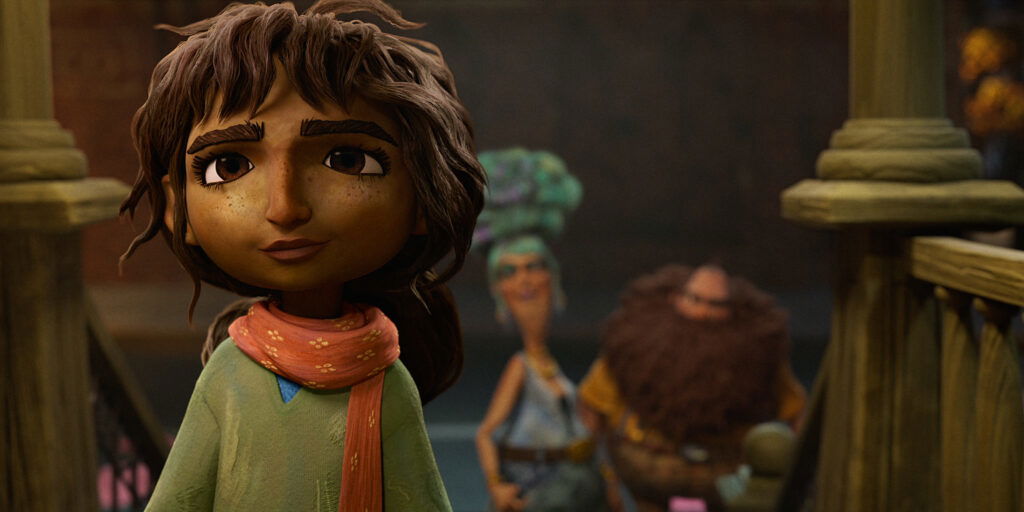
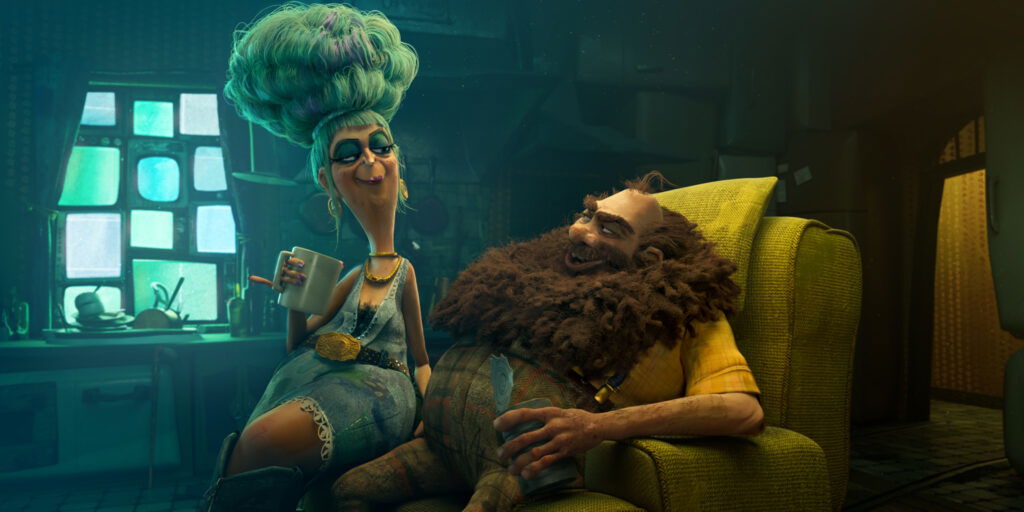
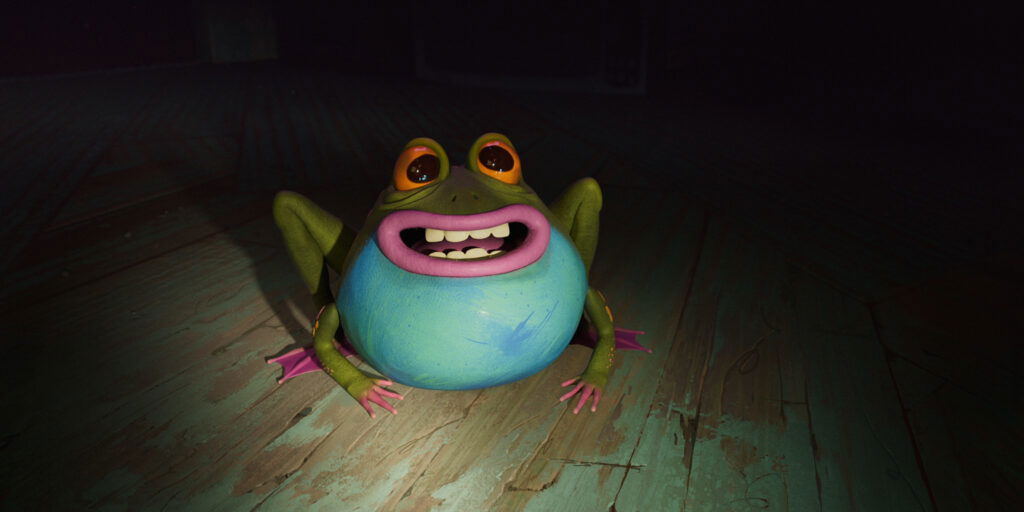
Are certain story beats in The Twits a little too predictable? Sure. Is the style of humor going to work for everyone? Probably not. But what works here works incredibly well. The characters are charming, the animation is delightfully absurd, most of the humor really worked for me, and its central theme of empathy triumphing over cruelty is one that desperately needs to be heard right now. I sincerely hope people give this a chance because it’s a journey well worth taking that both kids and adults can learn something from.

